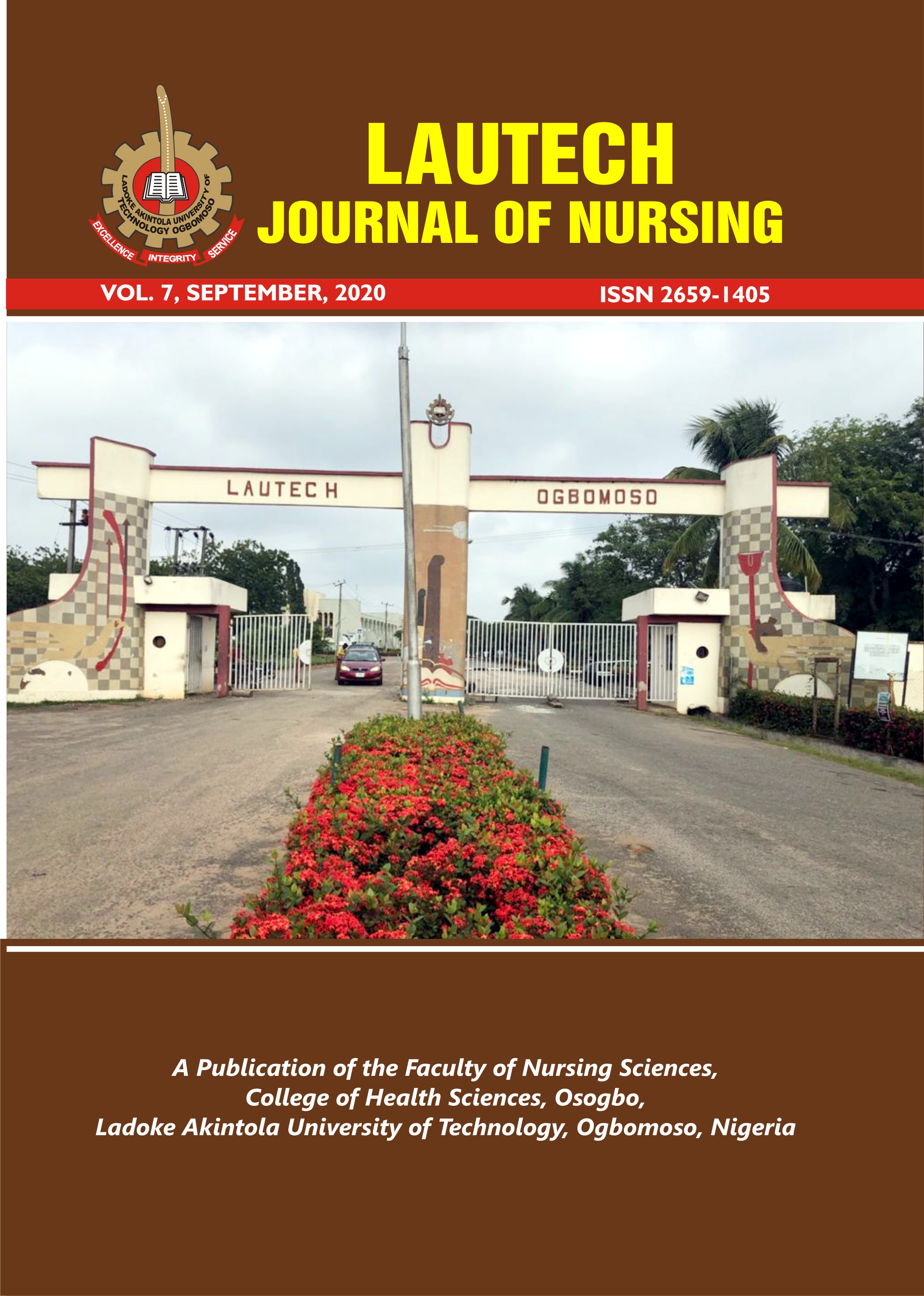Observation have shown that the highest
percentage (90%) of deaths from malaria
occurred in Africa south of the Sahara, with
pregnant women and their unborn children
being particularly vulnerable to its deleterious
effects such as anaemia and abortion. The
study determines the use/practice of Long Lasting Insecticide Treated Nets for malaria
prevention among pregnant women in a
purposively selected hospital in Lagos,
Nigeria. The descriptive survey method was
adopted and the target population is pregnant
women. The instrument for this study is a self-developed semi-structured questionnaire.
Data were analyzed using SPSS version 20
with descriptive and inferential statistics. The
result of this study shows that modal age of the
respondents ranges between 26-30years and
majority (74.4%) have up to tertiary education.
The result further reveals that the respondents
are knowledgeable about malaria while the
utilization of ITN/LLINS in malaria prevention
by the respondents is poor. Reasons for not
having or using the net are non-availability
and that it generates heat. Two hypotheses are
tested and findings reveals that in hypothesis 1
significant associations exists between
knowledge of malaria prevention and respondents’ educational level (x =14.225,
p<0.05) and in hypothesis 2 there is significant
association between the knowledge of malaria prevention and the use of the net (x = 9.442,
p<0.05). The study concludes that pregnant
mothers should be enlightened and motivated in the prevention of malaria through the use of
insecticide-treated nets.
- Ademuyiwa | Iyabo | Y. | debbyademuyiwa@yahoo.co.uk | +234805207 4063, Oginni | Monisola | O. | nursemoj@yahoo.co.uk | +234 706 781 3369, Afolabi | Wasiu | A. | afolabiwasiu@yahoo.co.uk | +234 802 393 4853, Lawal | Yetunde | F. | lawaly82@gmail.com | +234 802 316 6107
- Long-Lasting InsecticidesTreated Net (LLIN), MalariaPrevention, Pregnant Women
- USE OF LONG-LASTING INSECTICIDES TREATED NET (LLIN) FOR MALARIA PREVENTION AMONG PREGNANT WOMEN IN LAGOS, NIGERIA


